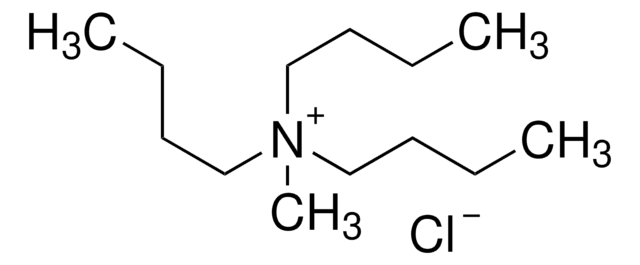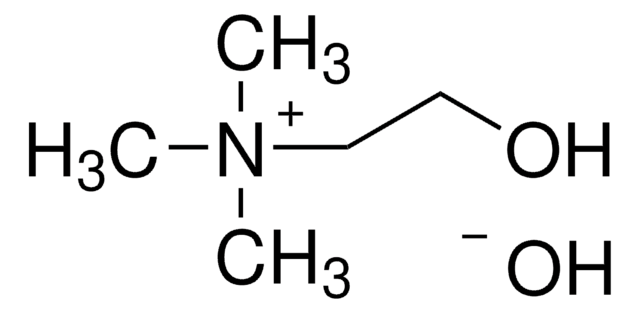276200
Tributylhexadecylphosphonium bromide
97%
Synonym(s):
Hexadecyltributylphosphonium bromide, TBHDPB
Sign Into View Organizational & Contract Pricing
All Photos(1)
About This Item
Linear Formula:
CH3(CH2)15P+[(CH2)3CH3]3Br-
CAS Number:
Molecular Weight:
507.65
Beilstein:
4167404
EC Number:
MDL number:
UNSPSC Code:
12352001
PubChem Substance ID:
NACRES:
NA.22
Recommended Products
Assay
97%
form
solid
mp
56-58 °C (lit.)
SMILES string
[Br-].CCCCCCCCCCCCCCCC[P+](CCCC)(CCCC)CCCC
InChI
1S/C28H60P.BrH/c1-5-9-13-14-15-16-17-18-19-20-21-22-23-24-28-29(25-10-6-2,26-11-7-3)27-12-8-4;/h5-28H2,1-4H3;1H/q+1;/p-1
InChI key
RYVBINGWVJJDPU-UHFFFAOYSA-M
Looking for similar products? Visit Product Comparison Guide
Related Categories
General description
Tributylhexadecylphosphonium bromide (Tri-n-butylhexadecylphosphonium Bromid) has a long hydrocarbon chain attached to the phosphorus atom. It is commonly used as a phase-transfer catalyst in various chemical reactions. In addition, it is also used as a cationic surfactant.
Application
Tributylhexadecylphosphonium bromide can be used as a phase transfer catalyst in the alkaline hydrolysis of PET (polyethylene terephthalate).
Storage Class Code
11 - Combustible Solids
WGK
WGK 3
Flash Point(F)
Not applicable
Flash Point(C)
Not applicable
Personal Protective Equipment
dust mask type N95 (US), Eyeshields, Gloves
Choose from one of the most recent versions:
Already Own This Product?
Find documentation for the products that you have recently purchased in the Document Library.
Customers Also Viewed
Katarzyna Wasilewska et al.
Polymers, 11(3) (2019-04-10)
The taste of drugs is an important factor affecting pharmacotherapy effectiveness, and obtaining formulations with acceptable organoleptic properties is still an ongoing issue in pharmaceutical technology. One of the innovative methods of taste masking is preparation of microparticles by the
Valter Castelvetro et al.
Environmental pollution (Barking, Essex : 1987), 273, 115792-115792 (2021-01-26)
Fish meal (FM) is an industrial product, mainly obtained from whole wild-caught fish, that is used as a high protein feedstuff component in aquaculture and intensive animal farming. Contamination of FM by microplastics (MPs), the synthetic polymer particles known to
Maitri Sanghavi et al.
Chemico-biological interactions, 240, 268-277 (2015-09-12)
High fructose diet (HFrD)-induced insulin resistance (IR) has been reported to be associated with an increase in albuminuria, glomerular hypertrophy and inflammation in kidney. However, the molecular mechanisms associated with high fructose-induced IR and renal dysfunction are still unclear. In
Simon Brand et al.
Water research, 136, 207-219 (2018-03-09)
An analytical method based on high resolution mass spectrometry coupled with liquid chromatography (LC-HRMS) for 25 quaternary phosphonium compounds (QPCs) and derived phosphine oxides (POs) was developed and validated. To investigate the occurrence and fate of QPCs in the aquatic
Tri-n-butylhexadecylphosphonium Bromide
Makosza M, et al
Encyclopedia of Reagents for Organic Synthesis, Second Edition (2001)
Our team of scientists has experience in all areas of research including Life Science, Material Science, Chemical Synthesis, Chromatography, Analytical and many others.
Contact Technical Service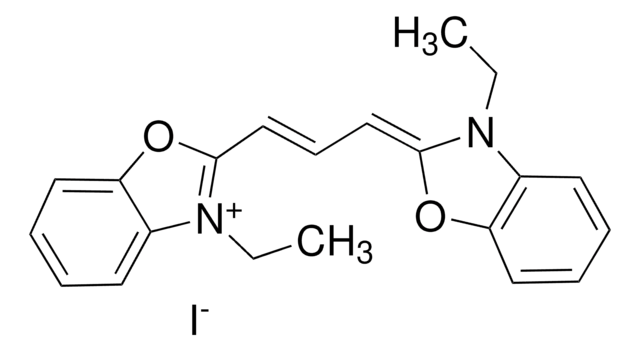
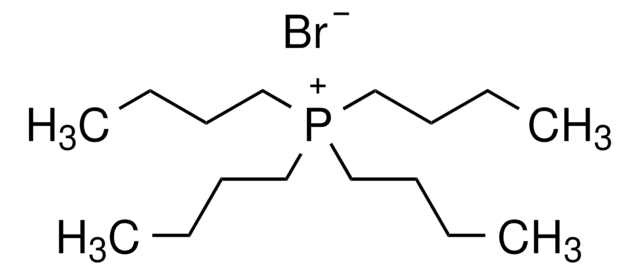
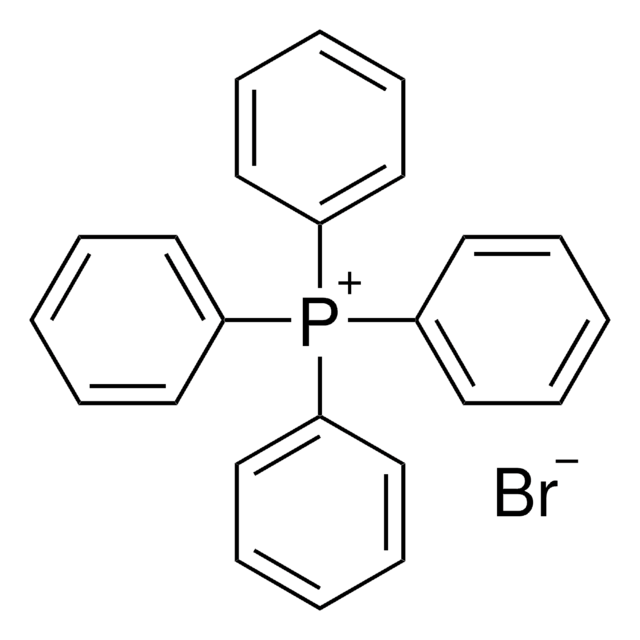


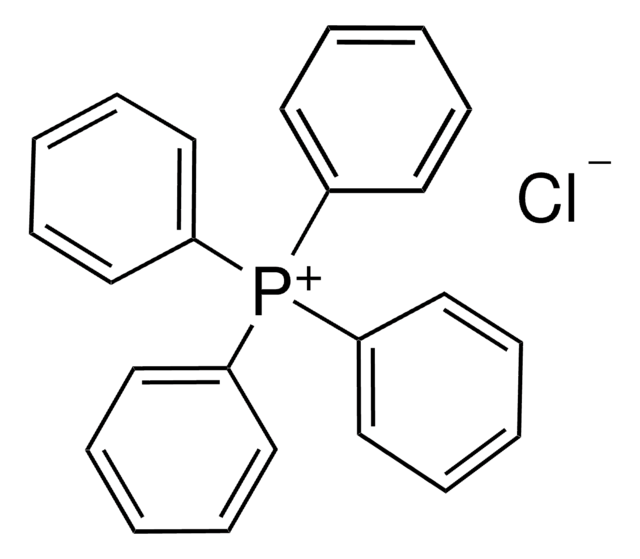

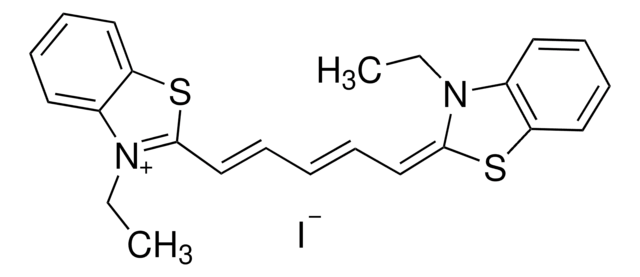

![trans-4-[4-(Dimethylamino)styryl]-1-methylpyridinium iodide Dye content 98 %](/deepweb/assets/sigmaaldrich/product/structures/416/722/5d59b6c3-5f2d-4396-a721-5cb82ba7038c/640/5d59b6c3-5f2d-4396-a721-5cb82ba7038c.png)

